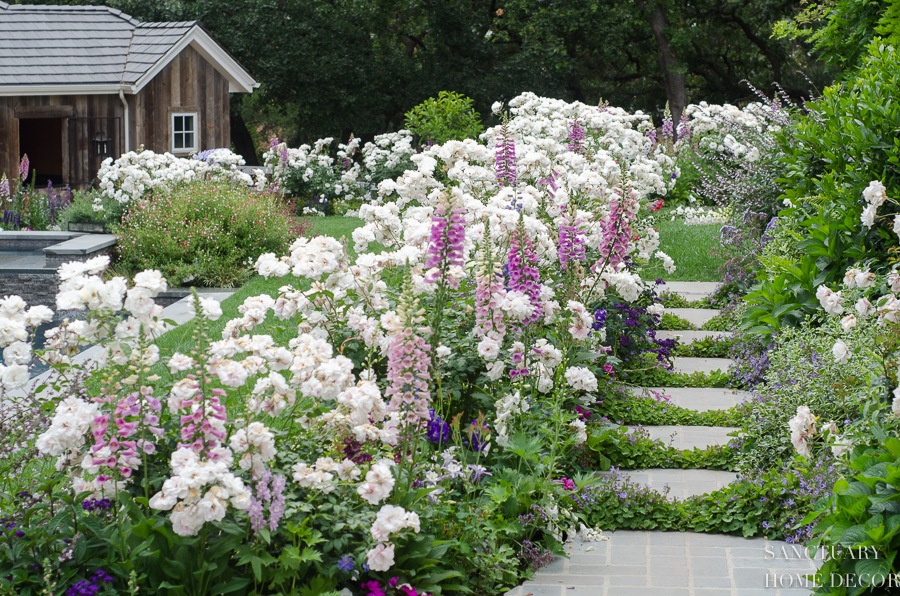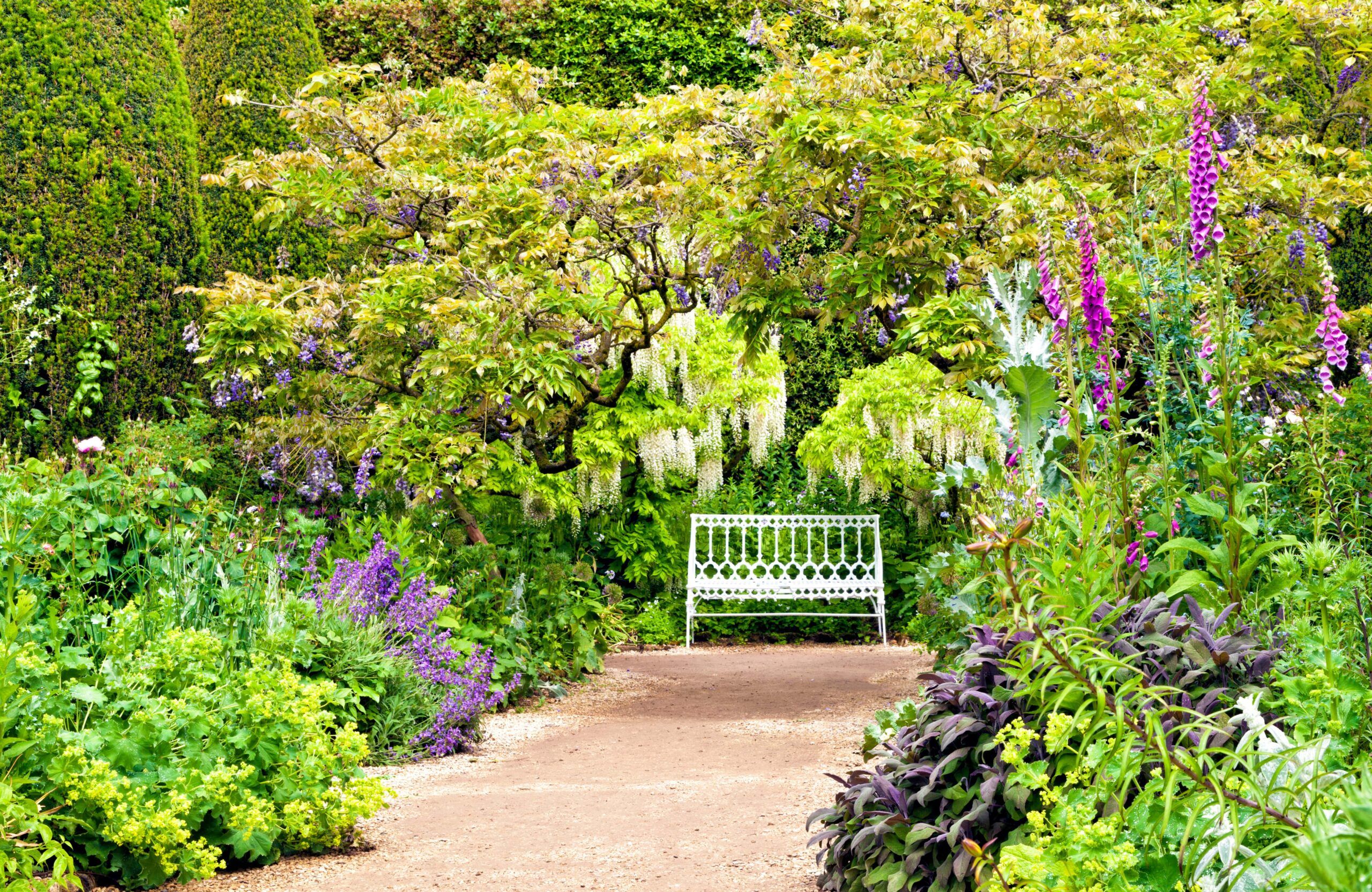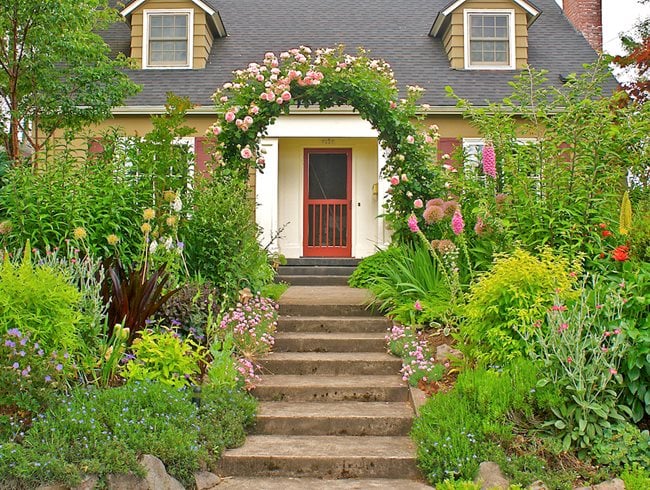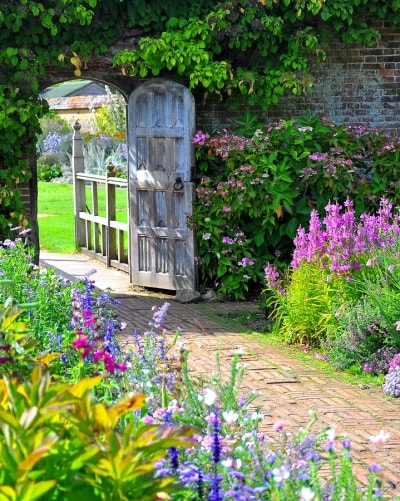Creating an English garden in your backyard can be a delightful experience that allows you to connect with nature while enhancing the beauty of your outdoor space. Having spent countless weekends immersing myself in the world of garden decor, I can tell you that the charm of an English garden is unparalleled. This article will guide you through various aspects of English garden decor, from essential elements to style tips, ensuring you’ll be well-equipped to create a picturesque and enchanting retreat.
What is English Garden Decor?
English garden decor refers to a style of landscaping that draws inspiration from traditional English gardens. Characterized by its emphasis on natural beauty, casual elegance, and organic arrangements, English garden decor often features:
- Colorful flower beds
- Curved paths
- Rustic furniture
- Water features
- Garden ornaments
The Essentials of English Garden Decor

To create a stunning English garden, consider incorporating the following essential elements:
1. Flower Beds
Flower beds are the heart of any English garden. Choose perennial plants, seasonal flowers, and shrubs to create depth and dimension. The famous English cottage garden often includes:

- Roses: A staple in any English garden.
- Lavender: Adds fragrance and attracts pollinators.
- Foxgloves: Tall and elegant, they bring vertical interest.
Tips for Flower Bed Arrangements
- Plant in groups of odd numbers to achieve a more natural look.
- Mix colors and textures for visual appeal.
- Consider bloom times to ensure year-round interest.

2. Pathways
Curved pathways are characteristic of English gardens. They invite exploration and create a sense of flow. You can use a variety of materials for paths, including:
| Material | Pros | Cons |
|---|---|---|
| Gravel | Inexpensive, easy to install | Weeds may grow through it |
| Flagstone | Durable, aesthetically pleasing | Costly, requires more effort to install |
| Brick | Classic look, sturdy | Can become uneven over time |

Creating Inviting Pathways
When designing your pathways, consider their width and the materials you use to ensure they are welcoming and fit your garden’s rustic charm.
3. Rustic Furniture
Adding rustic furniture pieces can enhance the inviting feel of your garden. Consider benches, chairs, or tables made of natural wood or wrought iron.

Best Furniture Choices
- Wooden Benches: Timeless and comfortable.
- Ivy-Covered Arbors: Perfect for creating a focal point.
- Wrought Iron Tables: Add elegance and sophistication.
4. Water Features
Including water features like ponds, fountains, or birdbaths can elevate your garden. The sound of flowing water adds tranquility, while also attracting wildlife.

Popular Water Features
- Ponds: Great for hosting aquatic plants and fish.
- Fountains: Create a stunning visual impact.
- Birdbaths: Encourage birds to visit, adding life to your garden.
5. Garden Ornaments
Ornaments add personality and charm. Consider incorporating:
- Statues and sculptures
- Birdhouses
- Decorative pots for plants
Styles of English Garden Decor
English gardens can vary greatly in style. Here are some of the most popular:
1. Cottage Gardens
Cottage gardens are perhaps the most recognizable English garden style. They are characterized by:
- Dense flower beds
- Informal layouts
- Wide variety of plant species
2. Formal Gardens
In contrast, formal gardens feature:
- Symmetrical layouts
- Defined geometric shapes
- Box hedges and topiaries
3. Mediterranean Gardens
These gardens borrow from the lush landscapes of southern Europe and are characterized by:
- Use of terracotta pots
- Herb gardens
- Low-water plants
Incorporating English Garden Decor in Your Home
Bringing the essence of English gardens indoors can enhance your living space. Here are key elements to consider:
1. Indoor Plants
Use flowering indoor plants like orchids or peace lilies to infuse beauty into your interiors. Group plants together for a vibrant display.
2. Floral Arrangements
Fresh-cut flowers can brighten any room. Opt for a mix of traditional English flowers like peonies and daisies.
3. Garden-Inspired Decor
Incorporate garden-themed art or fabrics into your home, echoing your outdoor aesthetics.
Tips for Maintaining English Garden Decor
To ensure your English garden remains beautiful through the seasons, consider the following maintenance tips:
1. Regular Pruning
Keep plants healthy and encourage blooming with regular pruning.
2. Soil Health
Test soil regularly and amend it with organic compost to enhance nutrient quality.
3. Seasonal Planting
Plan for seasonal changes by planting spring bulbs in autumn and fall flowers in spring.
Common Mistakes in English Garden Decor
While creating an English garden can be rewarding, there are a few common pitfalls to avoid:
1. Overcrowding Plants
Each plant needs space to grow; overcrowding can lead to competition for nutrients.
2. Neglecting Soil Quality
Poor soil can inhibit growth; always test and amend your soil.
3. Ignoring Maintenance
Neglecting regular upkeep can lead to a garden that doesn’t live up to its potential.
FAQs About English Garden Decor
What are the best plants for an English garden?
Some of the best plants include roses, lavender, daisies, and foxgloves. These plants offer a classic English garden look and attract pollinators.
How can I create a cottage garden on a budget?
Start with perennial plants that come back every year, use DIY decorations, and repurpose old furniture for rustic charm.
What style is an English garden?
An English garden typically blends natural beauty with structured layouts, focusing on an informal yet cohesive design.
How do I keep pests away from my garden?
Encourage beneficial insects and use natural repellents like neem oil or soap sprays to keep pests at bay.
Can I create an English garden in a small space?
Absolutely! Utilize vertical gardening, container plants, and hanging planters to maximize small spaces.
Conclusion
Creating an English garden is like painting a canvas with nature’s colors. It’s a rewarding journey that not only enhances your outdoor space but also promotes relaxation and joy. With the right elements, styles, and maintenance tips, you can transform your garden into a beautiful representation of English decor that welcomes you home every day. Embrace the charm of an English garden, and let your creativity flourish!